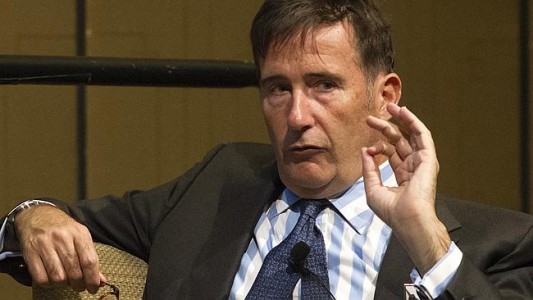Prominent Australian investor Mark Carnegie has called for tax reform to end the policy and financial straight jacket we find ourselves in – pointing to land tax, a resources tax and a lift in the GST to 15 per cent.
He labelled the Abbott Government’s upcoming White Paper on tax a waste of time, arguing that the Henry Tax Review has already outlined what needs to be done, and all that is required is a government with the courage to implement its recommendations.
“Tax needs to fall disproportionately on the rich – everyone agrees on that now,” he told the Australian Financial Review, a direct challenge to the Abbott government’s obsession with sloughing the burden of taxation onto those least able to bear it. This government is practising class warfare – redistributing among winners and losers – rather than pursuing the economic Golden Age that could be ours.
While one could dispute his use of ‘disproportionate’, he does speak truth to power in pointing out the best economic path is land tax and resources tax. These tax bases hurt no one and using them would make room to remove the very bad taxes government has become addicted to – Stamp Duty and Payroll Tax come immediately to mind.
Mr Carnegie said the consumption tax should rise to 15 per cent but only with a carefully devised compensation package to protect the poor. His venture capital company, M.H. Carnegie & Co, is funding the Australian Council of Social Service to do modelling on how the most vulnerable can be protected in any tax reform. He hopes other reforms can overcome the inherently regressive nature of GST, an optimism few share.
Proposals to raise and broaden the GST are met by deep scepticism from voters whose lived experience is that change is usually at a cost to them. It is difficult to imagine even well-considered adjustment can overcome this.
There are very low expectations that the Tax White Paper will deliver anything meaningful – it looks more like an attempt to delay and deflect tax reform.
As Carnegie suggests, we all know what needs to be done: tax lurks for the wealthy need to be closed and taxation shifted to efficient sources, notably land and resources.
Interestingly, if we embrace quality tax bases and reduce bad ones, the incentives for the wealthy to manipulate the system for advantage shrink mightily. Funny about that.



